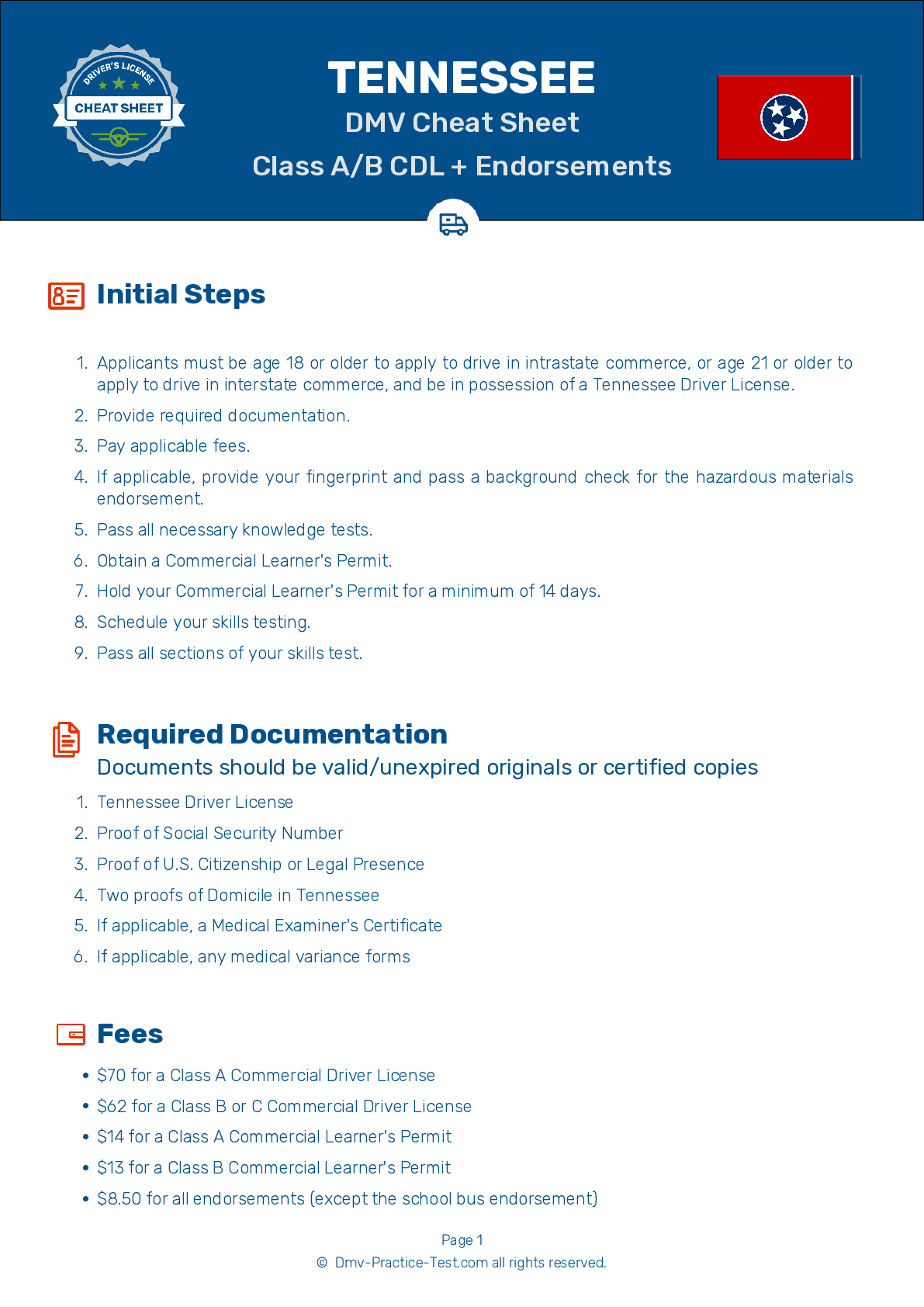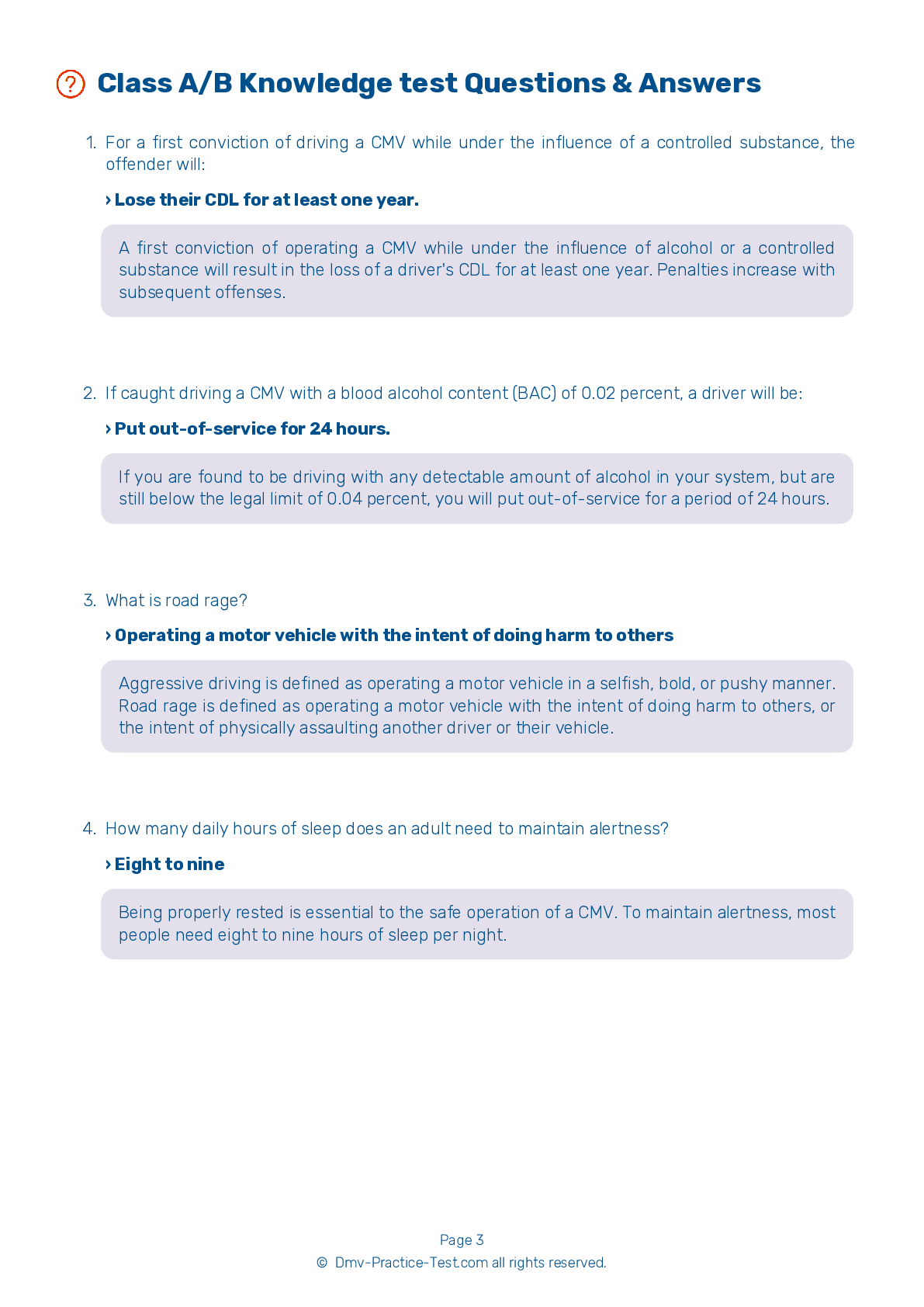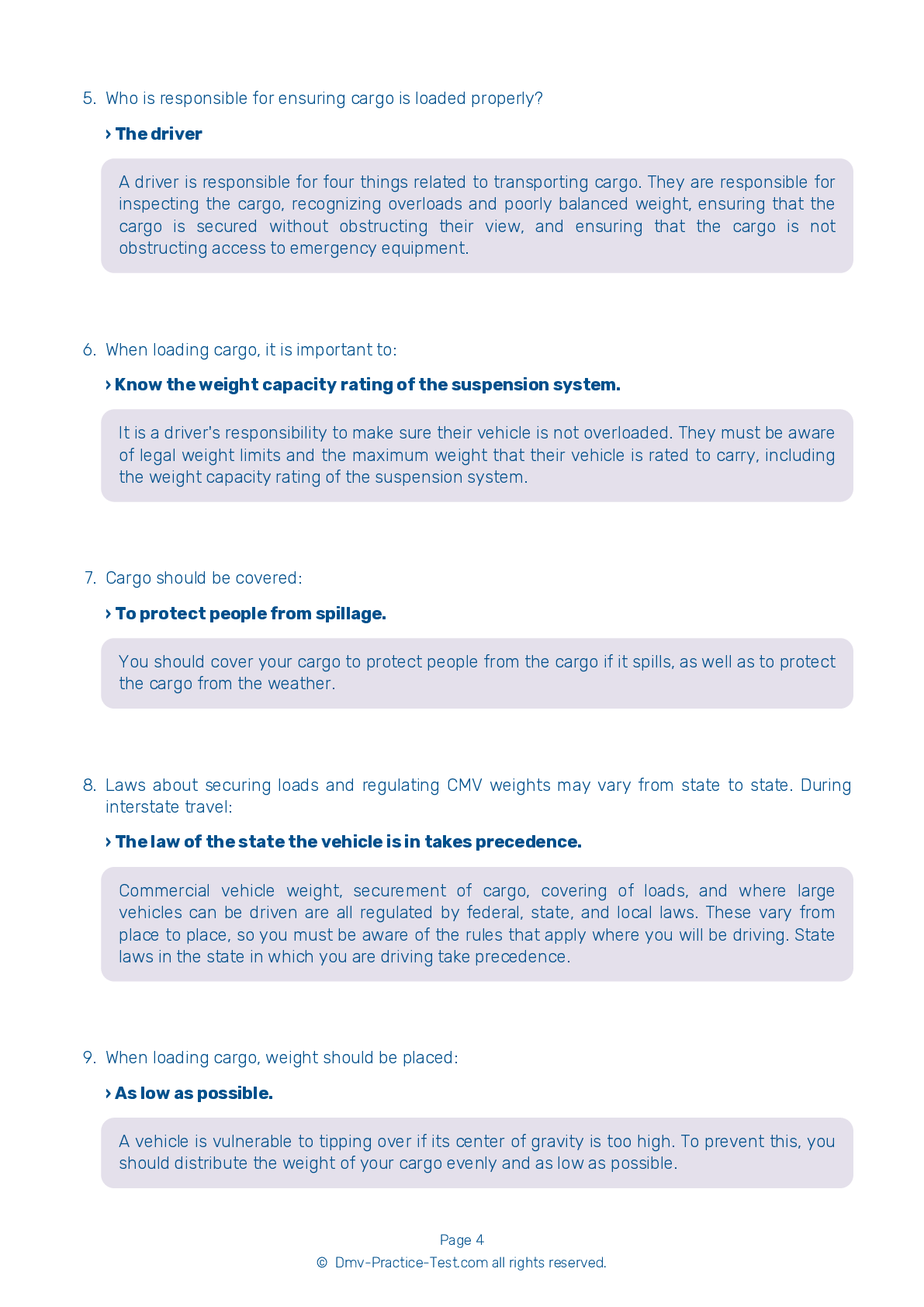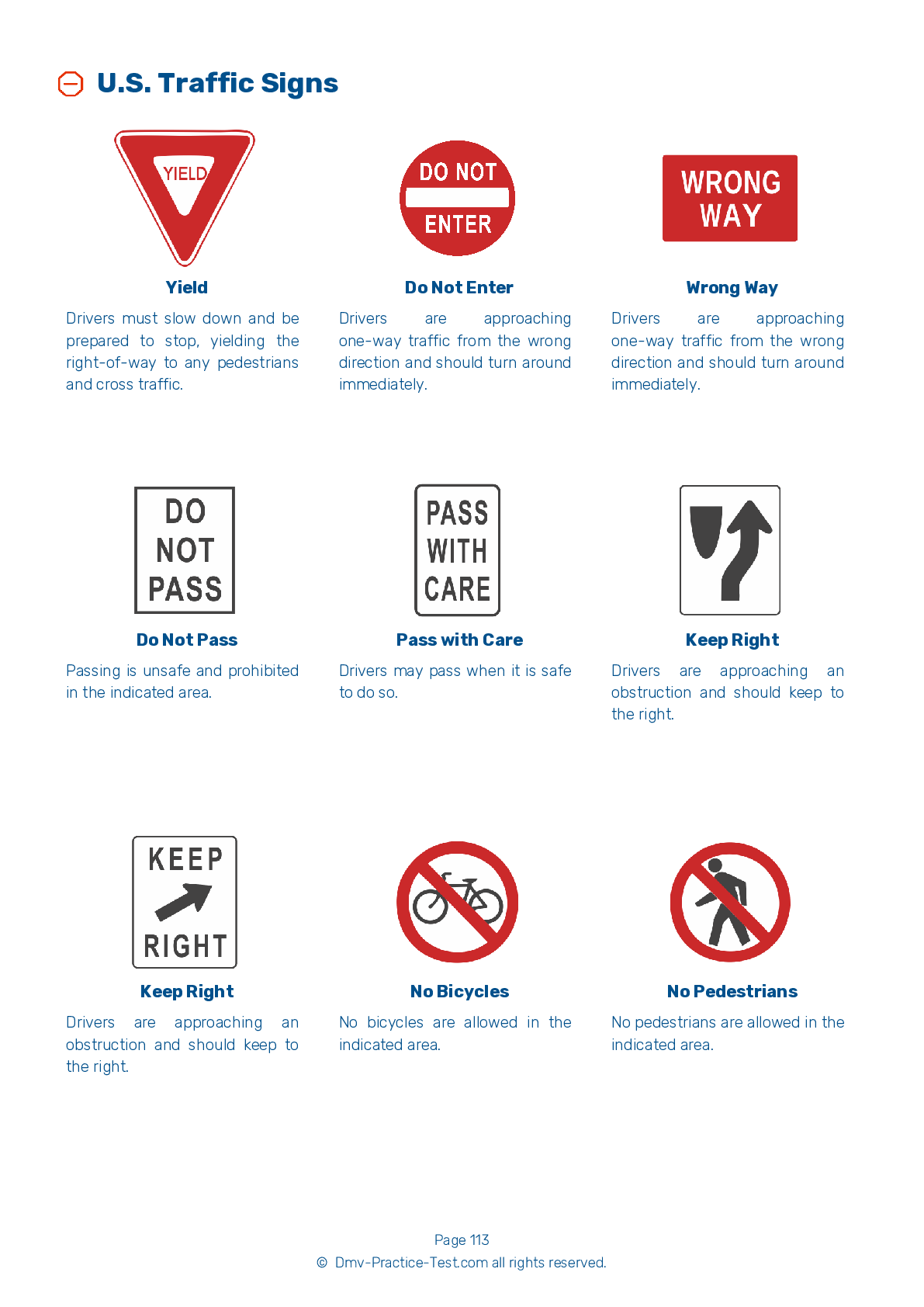Knowledge Test Class A #1
Class A Driving Test | Tennessee 2026 #1 Page 2 of 7
Train for FREE online with our Tennessee class A license test. The official exam test consists of several obligatory parts, with all of them checking your knowledge of different blocks of road rules. If you need to obtain a TN CDL class A permit in 2026, practice as much as possible. Free sample tests published on our website will help you check and improve your knowledge and boost your grades. Please bear in mind that CDL class A requirements may vary from state to state.
50
40
20
8 . The suspension system:
Lightens the load for the tires.
The suspension system holds up a vehicle and its load while keeping the axles in place. Faults in a vehicle's suspension system are extremely dangerous.
9 . On flat surfaces, wheel chocks:
In situations where a driver cannot use a parking brake, wheel chocks can be used to hold a parked vehicle in place on a level surface.
10 . When steering to avoid a crash, you should:
Speed up as you get nearer to the hazard.
When turning quickly to avoid colliding with a hazard in the roadway, you should always keep both hands on the steering wheel. You must have a firm grip on the wheel to be able to turn quickly.
11 . If being tailgated, you should:
If you are being tailgated, you should increase the distance between your vehicle and the vehicle ahead of you. This reduces the need for you to make sudden changes in speed or direction while making it easier for the tailgater to pass your vehicle.
12 . A posted maximum speed limit:
You should never drive faster than posted speed limits. For safety, you should slow down as conditions require.
13 . When taking the on-road driving test, you will be evaluated on your lane usage. Which of the following is an example of poor lane usage?
Finishing a right turn in the rightmost lane
During the on-road driving skills test, make sure you do not put your vehicle over curbs, sidewalks, or lane markings. Stop behind stop lines, crosswalks, or stop signs. On multiple-lane roads, complete turns in the proper lane. Always move to or remain in the rightmost lane, unless the lane is blocked.
14 . When loading cargo, weight should be placed:
A vehicle is vulnerable to tipping over if its center of gravity is too high. To prevent this, you should distribute the weight of your cargo evenly and as low as possible.
2026 Tennessee | Frequently Asked Questions
To acquire a CDL Hazmat endorsement in Tennessee, you need to pass a written test, submit fingerprints for a TSA background check, and pay applicable fees. You must already have a valid CDL. You can prepare for the test by studying the Hazmat section of the Tennessee CDL Manual. It's recommended to schedule your test at a local DMV office.
To obtain a CDL Hazmat license, you must already hold a valid Commercial Driver's License (CDL). You'll also need to pass a written Hazmat knowledge test, submit fingerprints for a Transportation Security Administration (TSA) background check, and pay the required fees. Additionally, you must be at least 21 years old and be able to read and speak English well enough to do the job.
When applying for a CDL Hazmat endorsement in Tennessee, you'll need to provide your current valid Commercial Driver's License (CDL), proof of U.S. citizenship or lawful permanent residency (like a passport or birth certificate), and proof of Tennessee residency. You'll also need to complete the TSA security threat assessment application and provide fingerprints for a background check.
Yes, there is a dedicated written test for the CDL Hazmat endorsement. The Hazardous Materials Endorsement Knowledge Test covers specific regulations and procedures related to transporting hazardous materials. The test typically includes questions about loading and unloading, bulk packaging marking, driving and parking rules, and emergency response procedures.
The written test for the CDL Hazmat endorsement covers a variety of topics related to hazardous materials. These include identifying different types of hazardous materials, understanding placarding and labeling requirements, knowing how to safely load and unload hazardous materials, understanding emergency procedures, and being aware of the rules for transporting hazardous materials.
Yes, obtaining a CDL Hazmat endorsement involves additional costs. In Tennessee, there's a $5 fee for the knowledge test and a $66 fee for the Hazardous Materials Endorsement Threat Assessment Program (HME TAP). The fees are subject to change and it's advisable to check with the local DMV for the most current charges.
Yes, a background check is mandatory for a CDL Hazmat endorsement. The Transportation Security Administration (TSA) conducts this check. It involves a review of your criminal history, immigration status, and possible connections to terrorism. A fingerprint-based check is also part of the process. This is to ensure the safety and security of hazardous material transportation.
Yes, specialized training is required for the CDL Hazmat endorsement. Applicants must pass a written test specific to hazardous materials. The test covers relevant topics such as identifying hazardous materials, understanding safety procedures, and following transportation regulations. This knowledge ensures the safe and legal transport of hazardous materials.
No, you cannot legally transport hazardous materials without a valid CDL Hazmat endorsement in Tennessee. The endorsement is required to ensure that drivers have the necessary knowledge and skills to handle and transport hazardous materials safely, in compliance with federal and state regulations. Violating these regulations can result in serious penalties.
You can add the CDL Hazmat endorsement to your existing CDL license. You don't need to apply for a new license. However, you are required to pass a written Hazmat knowledge test and undergo a TSA background check. Once these are successfully completed, the endorsement will be added to your current CDL.



